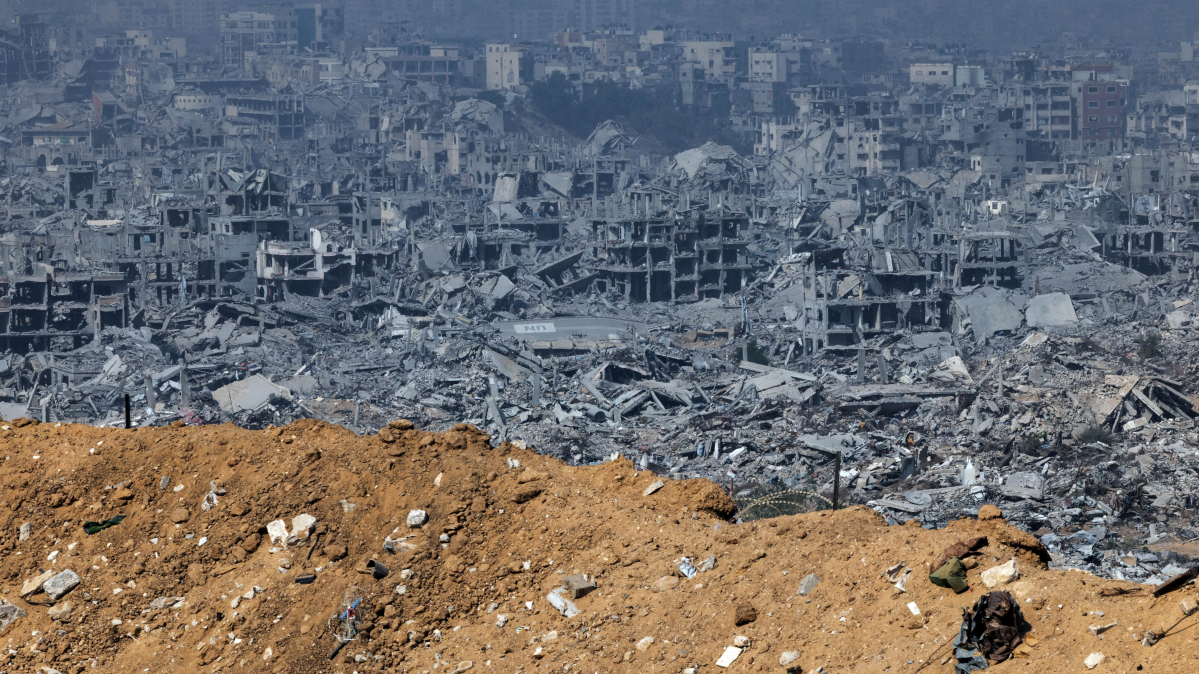Protests erupt in Pakistan and Iraq after Khamenei’s death; at least nine killed in Karachi
Protests broke out in Pakistan and Iraq on Sunday after Iranian state media confirmed that Supreme Leader Ayatollah A...

Palestinian resistance factions have rejected a U.S. draft resolution proposing an international stabilisation force in the Gaza Strip, warning it seeks to impose external control over the territory and undermine Palestinian sovereignty.
The joint statement, issued ahead of a scheduled United Nations Security Council vote on the draft, described the plan as paving the way for “foreign guardianship” over Gaza and sidelining Palestinian decision-making.
They insisted that any humanitarian or security effort must operate through Palestinian institutions, under full UN oversight, and without becoming a political instrument or security apparatus.
The factions rejected any clause that would involve disarmament in Gaza or divert from their internationally recognised right to resist occupation.
They also criticised language in the draft resolution that they say would turn aid into leverage, weaken the role of the UN agency UNRWA and effectively reshape Gaza’s internal reality via a foreign-run mechanism.
The statement stressed that any discussion over arms must remain a national matter tied to a political process that ends Israeli occupation and secures a Palestinian state.
The groups labelled the proposed international role as effectively serving the Israeli occupation if it coordinated with Israeli forces, and they called for any future force to fall under direct UN command, liaise only with official Palestinian bodies and restrict its tasks to protecting civilians, ensuring aid delivery and separating forces.
They also rejected any foreign bases, trusteeship or foreign military presence in Gaza, calling those a direct assault on Palestinian sovereignty.
The factions called for an Arab-Islamic framework for Gaza’s administration, advocating for a transitional Palestinian technocrat committee to take over from Hamas, rooted in the “free Palestinian will” and maintaining unity of land, people and institutions.
The draft resolution is tied to the second phase of President Donald Trump’s Gaza plan, which introduced the idea of an international force and outlined a pathway toward statehood.
The ceasefire went into effect on 10 October under Egyptian-Qatari-U.S.-Turkish mediation, but the planned transition into security and administrative arrangements has been delayed amid Israeli objections and continued violence in the Strip.
Follow the latest developments and global reaction after the U.S. and Israel launched “major combat operations” in Iran, prompting retaliation from Tehran.
Tensions between the U.S. and Iran are escalating, with Washington ordering a significant military build-up in the region and multiple countries evacuating diplomatic staff amid fears of further instability.
Governments across the region responded swiftly to Israel’s strikes on Iran, closing airspace, issuing travel advisories and activating contingency plans amid fears of escalation.
Two people were killed and around 40 injured when a tram derailed in central Milan on Friday (27 February), a spokesperson for the local fire service said.
Pakistani air strikes hit a weapons depot on the western outskirts of Kabul overnight, triggering hours of secondary explosions that rattled homes across the Afghan capital and left residents fearing further violence.
Follow the latest developments and global reaction after the U.S. and Israel launched “major combat operations” in Iran, prompting retaliation from Tehran.
A number of senior Iranian figures have reportedly been killed in Saturday’s joint U.S.–Israeli airstrikes on Iran, according to Iranian state media, Israeli military statements and international reporting. Some of the details remain unverified.
The death of Iran’s Supreme Leader Ayatollah Ali Khamenei has triggered one of the most significant political processes in the Islamic Republic: the selection of a new Supreme Leader.
Ayatollah Ali Khamenei, Iran’s supreme leader for 36 years and the country’s highest political and religious authority, has died aged 86 following joint Israeli and U.S. strikes on his compound in Tehran.
Journalist and International Affairs Commentator, Tom Gross, joined AnewZ from Tel Aviv to tell us why he thinks the attack happened now and whether this could mark the beginning of the end for the Iranian leadership.
You can download the AnewZ application from Play Store and the App Store.

What is your opinion on this topic?
Leave the first comment